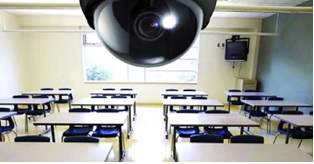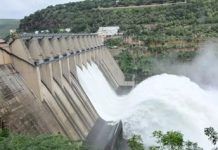The Delhi High Court has asked the city government to file a Standard Operating Procedure (SOP) on installation of CCTV cameras in classrooms of government schools. It said installation of cameras is important for the safety of children.
The high court orally observed that the two petitions challenging the installation of CCTV cameras in classrooms over privacy concerns were “premature” and said it will deal with the matter as and when the SOP is drawn by the government. “It is premature as of today. As soon as the SOP is drawn up, we will see,” a bench of Chief Justice Satish Chandra Sharma and Justice Subramonium Prasad said. The high court listed the matter for further hearing on July 18.
As the counsel for the petitioners submitted that classrooms are a safe space for children and no consent has been taken from parents for installing cameras, the bench said, “Why do you think that the state is insensitive? It is at a nascent stage. It is still under consideration.” Advocate Jai Anant Dehadrai, representing petitioners Daniel George and Delhi Parents Association, said cameras need to be there in schools at some places but not in classrooms as it concerns privacy of students and preservation of their dignity under Article 21 of the Constitution.
He said installation of CCTV cameras inside classrooms may have a grave psychological impact on children and no psychological analysis has been done by the authorities on this “vulnerable group”. The counsel claimed the Delhi government will be live streaming the data to third parties which means data will be shared with other parents.
However, the bench said the circulars of the Delhi government only mention the words ‘online access’ which is different from ‘live streaming’. Earlier, the Delhi government had opposed the pleas challenging its decision to install CCTV cameras in classrooms, saying the right to privacy is not absolute and the system will ensure the safety of children.
The Delhi government counsel had told the bench that not only has the Supreme Court rejected a similar petition before it but there has been no complaint to the authorities by parents against such installation in their children’s classrooms.
“Not a single complaint addressed by any parent of any student studying in these schools. There are 728 government schools in which it was proposed to be installed and out of 768, in 601 it is already installed and functioning for the past 3 years,” the government counsel had said. The government had filed an affidavit in response to the petitions and clarified that the decision was not a “knee-jerk reaction” to the reports of sexual abuse in September 2017, and that it was under deliberation for more than 2 years. It said the installation of cameras does not infringe upon the right to privacy.
In 2018, petitioner Daniel George had moved the high court saying it was not healthy to have cameras inside classrooms and the constant scrutiny by cameras would have a psychological impact on the children apart from raising concerns of voyeurism and stalking.
The petitioner, who claimed to be involved in the field of education awareness, has sought that a feasibility test be held amongst the target population of students and teachers to understand the issues they face when it comes to surveillance.








